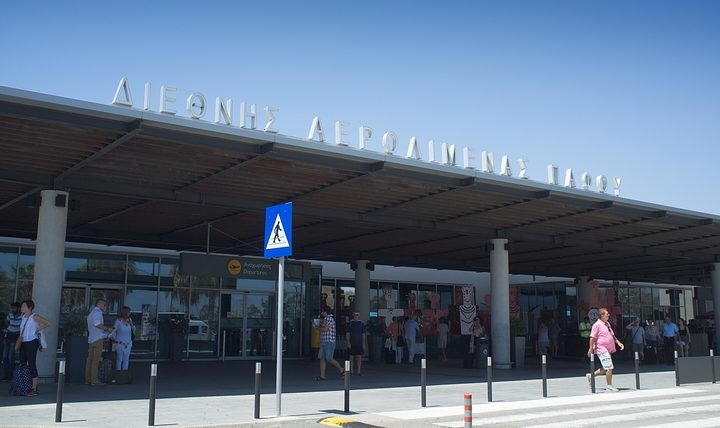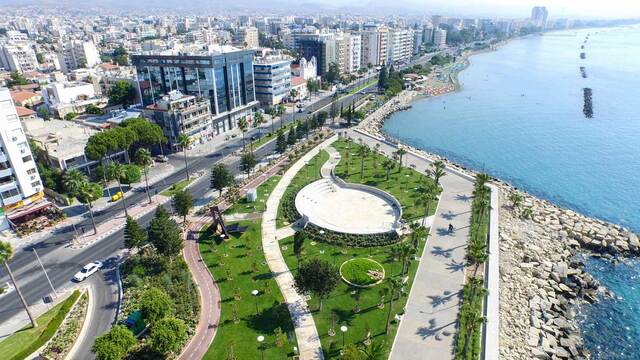Cyprus’ hopes of preventing another disastrous tourism season blighted by coronavirus have been dashed as the island remains off-limits for British tourists.
British tourists arriving in July seem to be fading after UK Prime Minister Boris Johnson delayed plans to unlock the country.
The UK has pushed back the much-anticipated step of allowing foreign travel for Britons to 19 July because of the rapid spread of the more infectious Delta (Indian) variant.
Britain had announced it would be lifting travel restrictions on 21 June. Still, the UK government delayed the unlocking due to a new wave of infections and hospitalisation triggered by the Delta variant.
UK health authorities have reported well over 7,000 new cases a day, the highest since the end of February.
Johnson delayed lifting the last COVID-19 restrictions to allow the country’s vaccination rollout to reach more people.
Almost 42 million people have had a first vaccine dose – about 80% of the adult population – and 30 million have had a second shot.
Cyprus does not expect to see itself on the UK green travel list when authorities revaluate epidemiological data.
Authorities were optimistic over Cyprus’ chances of clawing back losses this summer.
Reportedly, UK authorities will not make any changes to the travel list, with Cyprus remaining in the amber category.
Britons will have to self-isolate for ten days and take two PCR tests after returning from the island.
Cyprus was expecting British tour operators and airlines to return next month.
TUI was set to resume flights to the island as of early July and Jet2 on 11 July. According to Cyprus airports operator Hermes Airports, the two airlines have not altered their plans.
The island has already seen income from tourism in 2020 slashed by 84%.
Salvaging a sector that provides 13% of direct revenue to the economy has become imperative as one in ten Cypriots are employed in tourism.
Disappointment
Deputy Tourism Minister Savvas Perdios was on tour to London last week to convince UK authorities to add Cyprus to their green list.
At about 85% in lost income last year, losses were “tragic”, said Perdios, in an interview with UK’s ‘The Guardian’ published on Wednesday.
“We feel that we deserve the green category as soon as possible,” he said.
“Our positivity rate but also our R number is lower than in the UK itself, so we have better statistics than the UK, and we have the best statistics in the Mediterranean for variants.”
“If we’re going to be sat here having these great stats but not being recognised for all the work we have done, it’s just going to lead to disappointment.”
In comments to the Financial Mirror, Chrisemily Psilogeni, the Association of Cyprus Tourism Enterprises general manager, said Britain extending restrictions till mid-July means Cyprus loses another month.
“Losing July would inflict serious damage on tourist enterprises who solely depend on the British market, like most of the hotels in Paphos,” said Psilogeni.
She said that the situation remains fragile, with many businesses on the verge of going under.
“The government will have to continue its support packages to employees and businesses for as long as necessary.”
Regarding hotels and tourist enterprises in Famagusta and Larnaca, Psilogeni said they are holding up due to Russian tourists and weekend domestic tourism.
Central Europe
A spokesperson for the Association of Cyprus Travel Agents (ACTA), Charis Papacharalambous, told the Financial Mirror that although stakeholders were not shocked by the UK’s decision, it is a hard pill to swallow.
Papacharalambous said: “The UK government had been taking decisions based on their political agenda, which wants Britons to stay at home this summer and not spend their cash abroad”.
“Unfortunately, we have to work with what we have, which is not much to go on; like Russia, another wave of infections is also hitting our second-largest market.”
Pre-Covid-19, over 53% of Cyprus’ record 3.97 million tourist arrivals in 2019 came from the UK (33.5%) and Russia (19.7%).
Cyprus had three successive boom years before the pandemic struck, with British arrivals peaking at 1.4 million.
“Unfortunately, there is not much that can be done,” argued Papacharalambous.
“Apart from bettering our epidemiological data, the only other thing we could do, and authorities are looking into it, is turn to Central European markets.
“We hope that soon the Scandinavian market and Central Europe will open up, facilitated by the European COVID-19 digital certification, but without the British, Cyprus tourism is on shaky ground.”
The Cyprus Hotel Association is trying to make the most out of August and prolong the tourist season.
“The UK’s decision is a blow to our industry, but turning to markets like France, Switzerland, Ukraine, and other European countries could partly save the day,” said CHA director-general, Philokypros Rousounides.
“The island’s year-round good weather blesses Cyprus tourism; stakeholders will be throwing themselves into extending the season well into November.”










